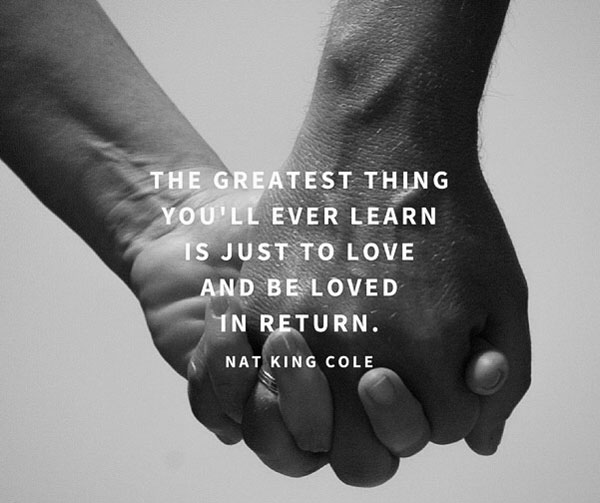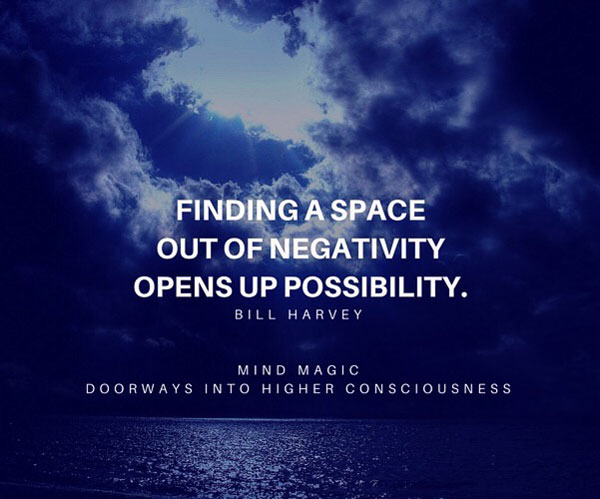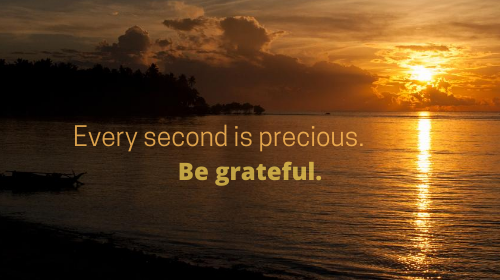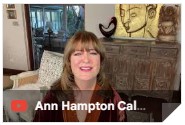Powerful Mind Part 16
Welcome to this week’s Bill Harvey Blog, November 1, 2024.
Created June 23, 2023

Although the inelegant coinage “Woke” has been given many layers of automatic associations by today’s external world, use the strength of your own personal will to prevent being in any way affected by the word “awakening” – it’s as good as any other word, and it’s important because the entire species is walking around in a kind of dream state.
To review, what we are shifting over to when we cut away remnants of conditioned thinking imposed on us from the outside, is our own God-given self, not just our mind but our body and feelings and intuitions – the “ME” that was born. The unique nature package that will never be duplicated again. With your own gifts to bring to the world. When awakened to your own gifts you will be a soul-inspired and in Flow state for much of the time your gifts will actually help the world.
You are cutting over to your own will power, your ability to force aside old habits, and teach your mind and your body new and better habits, those which come from inside you.
This will take resolution and perseverance because of the strength of the conditioning each of us has received. Hundreds of thousands of hours of habit creation and reinforcement. Each habit repeated over and over tens of thousands of times. Most of the neurons in the brain perform automatically and at a subconscious level to determine 95% of our decisions. This is the part of you that I call “the robot”.
What is not the robot is the real you.
From moment to moment, from thought to thought, feeling to feeling, impulse to impulse, you need to know where it is coming from. Is it coming from you, or from the robot?
If it’s coming from the robot, you don’t want to act on it. If it’s a bad feeling, you want to drop it as if it were a living leech. Because that’s exactly what it is. Habits you have acquired that work against who you are. Leeching energy, time, and attention which you would prefer to use in other ways. Be aware of your own will power as the strength to enforce these decisions in the moment without backsliding into being controlled by a mind invader.
How do you know if you are in the robot or in your own true self?
One sign it’s the robot is the presence of fear. Take control by befriending the robot and discussing the situation with it. It is a biological AI, and you have common interests, so you are leading consensus, not bickering.
What are you afraid of, old chum?
Tell the robot where you are going with this, and why that fear is not useful. You have that situation figured out and are patiently applying the solution step by step, and the robot can cancel those ancient alarm requests.
Of course, if you don’t have the solution worked out yet, you can thank the robot for calling your attention to it, and ask it to turn off the distracting alarm emotions so you can work out the solution clearheadedly.
Anger is another sign that it’s not you. It’s the robot. The real you has reservoirs of courage and forgiveness that prevent flareup of anger. If you are not experiencing that arc, that space between having cause to feel angry and actually letting the anger in, you are not exhibiting metacognition. Metacognition is that arc. The space between neurons is where the synapse connection occurs, and in your consciousness, you need to have that kind of space too, where any action of the mind arises to consciousness to first be inspected, rather than automatically engaging the gears of the fight-or-flight response.
Overwhelming sadness is another sign of the robot. The true you is not overwhelmed by anything. You have your free will, your agency, your resoluteness, and courage. If you are sad you might be in your true self or in your robot, but take the reins and move into your real self by objectively determining the cause of your sadness and your alternative courses of action to remove the cause of sadness. If you come up with some solutions which favor you but not others, be suspicious it could be coming from the robot.
Put aside the fear of schizophrenia. Guiltless housecleaning of the mind, and finding that there is a robot you built yourself by giving yourself a great number of subconscious orders, doesn’t mean you have a split personality. It means you have a lot of externally imposed requests you are still obeying years later and you no longer need to follow those constraints. Your one self is your one self. These other automated parts of yourself are like Clippy the Microsoft Office Assistant and all of the other unhelpful and annoying attempts computer system designers have made (with good intentions) to provide even better service to users. In the case of your personal Clippy inside, you threw every external exhortation that hit you in that steamer trunk and expected it to sort everything out and cause your behavior to be found exemplary in the eyes of others. Your instinct to seek the approval of others is what caused the robot in the first place.
You only need the approval of yourself – and God (if you accept the possibility of the universe being conscious because that is what God could actually be, scientifically speaking).
Running after the approval of others is definitely robot behavior.
Not caring about others is definitely robot behavior.
Look out for these conditions as you observe yourself. Switch into objective Observer state and do not wish for specific outcomes, start from observation first, then problem statement, then solutions, then a plan. That plan will aim at specific outcomes but do not allow yourself to become attached to the outcome, the situation or your knowledge and understanding of it might change, and that might change the outcome targeted. Stick with the plan and enjoy carrying it out.
If you find yourself rushing, that’s the robot. Set up your plans so that you don’t need to rush anything. You want top quality Flow state within the time constraints that are beyond your control. Reduce the number of specific things on your list to permit non-rushing. If you overbook yourself, you are forcing the robot on yourself.
Love to all,
![]()
Listen to my recent interview about my book THE GREAT BEING

In this 15-minute interview with Marianne Pestana on KMET ABC News Affiliate, I talk about THE GREAT BEING, my latest book in the Agents of Cosmic Intelligence series.
Listen here.
You may know that I’ve been publishing a sci-fi series called Agents of Cosmic Intelligence, an alternative history of the Universe, in which some of the main characters put into practice the mental methodologies I’ve compiled into my nonfiction books. All of this is aimed at enabling the human race to become more effective and to undo the messes made in the past. By contradistinction to AI, Artificial Intelligence, I think of this as HI, Human Intelligence. I feel that it’s obvious we should be putting at least as much time, money, and effort into HI as into AI – especially if we are fearful of what AI can do to subjugate us.
The books in the series so far take place long ago or in the near future, but what was missing until now is how the Universe began, and what happened on Earth before ~3000 BC. That is now in The Great Being, which is chronologically the first book in the series.
Two reviewers have already written reviews of The Great Being and they really “get” what the whole series is aiming at. I’ve waited for this feeling of someone really getting it for a long time and it is heartwarming to say the least. Here are excerpts and links to the reviews. — Bill
Reviews of The Great Being Warm the Cockles of My Heart
4.2 stars. A compelling and thought-provoking work of science fiction. Harvey’s sprawling, hugely ambitious exploration of consciousness, free will, and the eternal dance between light and darkness is intellectually stimulating and emotionally resonant. The novel’s central message—that all beings, no matter how lost or misguided, are ultimately part of a greater cosmic unity—is a hopeful and uplifting one…Read the full review. — Indie Reader

A singularly unique and eye-opening work of visionary fiction, Blending realms of historical, religious, spiritual, and mythological traditions, this is an ambitious and epically creative read … The full value will be more readily apparent to those readers who can see the threads of allegory, legend, and science woven into one unified whole. Enlightenment and radical self-awareness are powerful undercurrents within the narrative; the role of dogmatic thinking, hierarchical power structures, and the tyranny of knowledge are explored in various ways through the characters’ revelations, opinions, and personalities. The story within a story here is one of psychological development and the real-life pursuit of higher modes of thinking … A wide-reaching and insightful assessment of human civilization and behavior…Read the full review.—Self-Publishing Review / Independent Review of Books
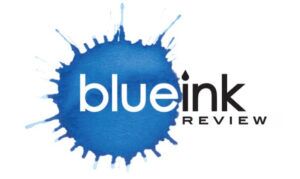
Tonally amusing, aesthetically fearless, and packed with witty observation and divine incident … By turns accessible, erudite, and hallucinogenic, it is an intriguing philosophical romp that cleverly fuses psychedelic science-fiction and fantasy elements with organized religion’s creationist ideologies and the scientific theories of evolutionism … An ambitious, entertaining novel packed with spiritual curiosity, one that will greatly appeal to fans of intelligent science fiction and alternative history stories alike… Read the full review. —BlueInk Review
 Blending spiritual philosophy, alternate history, pre-historic adventure, and brisk life-after-life storytelling, The Great Being is above all a beginning. First comes creation itself, which gets started with the knockout opening line (“The Nothingness felt surprise upon realizing itself.”), … This is the fourth entry published but the first chronological chapter. It shares the swift pacing, spiritual seeking, twisty plotting, and sharply human dialogue of the earlier books, though its focus feels tighter… Read full review, —BookLife by Publisher’s Weekly.
Blending spiritual philosophy, alternate history, pre-historic adventure, and brisk life-after-life storytelling, The Great Being is above all a beginning. First comes creation itself, which gets started with the knockout opening line (“The Nothingness felt surprise upon realizing itself.”), … This is the fourth entry published but the first chronological chapter. It shares the swift pacing, spiritual seeking, twisty plotting, and sharply human dialogue of the earlier books, though its focus feels tighter… Read full review, —BookLife by Publisher’s Weekly.
![]() In Harvey’s retelling of the creation myth, heavenly agents combat a growing rebellion unfolding on Earth … this story deftly explores human nature—the uplifting qualities and dour traits alike … enthralling tale of humanity’s origins and cosmic espionage… Read full review, — Kirkus Reviews
In Harvey’s retelling of the creation myth, heavenly agents combat a growing rebellion unfolding on Earth … this story deftly explores human nature—the uplifting qualities and dour traits alike … enthralling tale of humanity’s origins and cosmic espionage… Read full review, — Kirkus Reviews
 A real standout…The radically inviting nature of this story brings with it the opportunity to view life and God in an entirely different light…Designed to awaken and introduce new interpretations of spirituality and life meaning. As readers who may not have expected such nuances come to absorb the greater gift of The Great Being‘s message, they will find the radically inviting nature of this story brings with it the opportunity to view life and God in an entirely different light … The story evolves with a reinterpretation of myths, events, and concepts that doesn’t just invite, but demands discussion and insights on the parts of all kinds of spiritual thinkers as the story evolves a unique and compelling flavor of discovery … One of Bill Harvey’s great talents lies not just in his storytelling ability, but his focus on translating life events and history with new interpretations … Readers interested in transformative reading… will find The Great Being‘s message to be one of hope, discovery, and new ways of viewing the universe [and] will find The Great Being a standout. Read the full review. — Diane Donovan for Midwest Book Review
A real standout…The radically inviting nature of this story brings with it the opportunity to view life and God in an entirely different light…Designed to awaken and introduce new interpretations of spirituality and life meaning. As readers who may not have expected such nuances come to absorb the greater gift of The Great Being‘s message, they will find the radically inviting nature of this story brings with it the opportunity to view life and God in an entirely different light … The story evolves with a reinterpretation of myths, events, and concepts that doesn’t just invite, but demands discussion and insights on the parts of all kinds of spiritual thinkers as the story evolves a unique and compelling flavor of discovery … One of Bill Harvey’s great talents lies not just in his storytelling ability, but his focus on translating life events and history with new interpretations … Readers interested in transformative reading… will find The Great Being‘s message to be one of hope, discovery, and new ways of viewing the universe [and] will find The Great Being a standout. Read the full review. — Diane Donovan for Midwest Book Review


